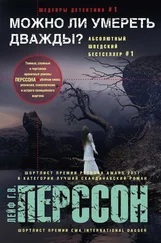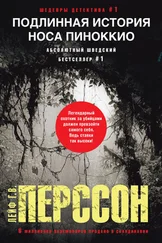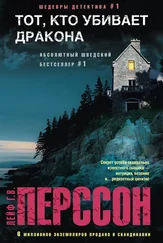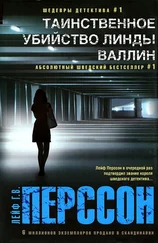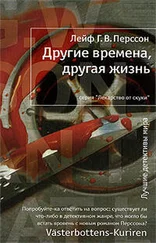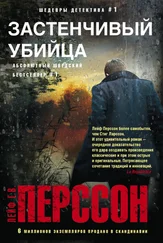The head of the homicide squad was not one to complicate matters unnecessarily. In his profession he had learned that the simplest explanation is most often the right one. A group of young students, he thought. Radical, motivated, with self-discipline and minds in good working order. Perhaps they even lived together in one of those strange collectives he had read about in the newspaper. And a not terribly bold guess was that they were Swedes.
When he turned over the case to his colleague at Sec who would be assuming responsibility for the investigation, he brought up his musings. Simply a few words in passing, which of course he should have spared himself. His colleague was not a real police officer but rather a legally educated police superintendent of the usual self-confident type and his reaction was familiar.
He had nodded with the expression of a man who always knows best, sighed wearily, and drawn a well-manicured index finger along his long nose. “I’m sure that thought has occurred to us too,” said the police superintendent deliberately, but that was it. Before long the head of the homicide squad thought less and less about the whole matter, and after a few years it was not even included in the assortment of heroic police stories he used to tell when he encountered real policemen. Nowadays there were newer, better ones.
Otherwise the secret police should have had a few things to work with. The warnings that German terrorists were planning some form of action on Swedish soil had arrived with increasing frequency during the year preceding the embassy occupation. It was a jumble of high and low, just as it ought to have been: anonymous leads, information from various informants, and even a report prepared by one of Sec’s own undercover agents, but they all had one thing in common. There was nothing concrete or tangible to get hold of, and during the spring it had seemed most likely that the whole thing had settled down. All was quiet on the informant front; not even their best informants had the least little thing to bring in.
A few leads and observations had also arrived via colleagues within the open operation. Mostly they concerned “mysterious vehicles” and “shady individuals” who had been observed at and around the West German embassy before the terrorists’ action, but despite investing a lot of time in following them up, they had not led to anything. It was exactly as usual, in other words, for leads of this type almost never led to anything. This is in contrast to activities you initiated and guided yourself in the form of surveillance, infiltration, and the organized gathering of information through telephone monitoring, other types of eavesdropping and radio surveillance.
The recurring assertions in the media that the secret police had ignored a clear threat were discussed at several of the secret police’s command meetings, and also in the secret police’s parliamentary committee. As so often in the past it was possible to show that this was pure nonsense, baseless idle speculation intended to damage the operation. Measures had been taken that there was reason to take, and for a few weeks, when the host of rumors was at its strongest, the West German embassy had been entered on the list of highly prioritized surveillance objects.
The result of that measure had been unambiguous. No indications whatsoever had emerged that something was in progress, and the allocated extra surveillance had been withdrawn, which was a gift from above because the Russian squad suddenly had an unexpected need for extra personnel. The parliamentarians in the committee were completely satisfied with the report they received. The occupation of the West German embassy was an isolated incident, planned and executed by a faction within the West German terrorist underground that could best be described as a collection of fanatical loose cannons from the University of Heidelberg. According to information Stockholm authorities had received from their colleagues in the German secret police, many of the faction’s more established comrades — in the regrettably extensive circle of radical elements — had taken strong exception to what had occurred. The embassy occupation had not benefited the common struggle.
Leading that struggle to a successful finish demanded better planning and more organization. The Swedish secret police, strangely enough, drew the same conclusion in the report that was submitted to their committee less than a year after the embassy drama. “For this reason, among others, the risk of another, similar event on Swedish territory, directed against German or Swedish interests and executed by German terrorists, is judged to be very small.” There were “other risks that [were] significantly more serious,” and regardless of whether this was true or false, it would have been bureaucratic suicide to maintain the opposite. And the secret police’s investigation of the embassy drama was thereby concluded.
What remained were the memories. Police memories.
Jarnebring remembered the smell of burnt telephone, but because that was an extremely unusual smell even at his place of work, less common even than the odor of madeleines, that was not what would bring up the images in his head. Other things did, or nothing at all. Sometimes, most often in his dreams, the memories of those minutes in the stairwell of the embassy would come crowding in on him without his having the least idea how or why. It was no big deal, for fairly soon he stopped talking about what had happened, and not long after that he also stopped wondering about it. We human beings are fortunately constituted in that respect, he thought.
His best friend and closest colleague, Lars Martin Johansson, a newly appointed detective inspector as of a month before the embassy occupation, also had his memories despite the fact that he had not even been in the vicinity of the West German embassy. On Thursday the twenty-fourth of April 1975 he had taken comp time to take care of his two small children who were too runny-nosed to go to day care. He had followed the embassy drama from the couch in front of the TV in his living room on Wollmar Yxkullsgatan on Söder. And he had definitely not phoned Jarnebring ten times, despite what Jarnebring’s wife at the time maintained. He had phoned three times, neither more nor less, and not to satisfy his curiosity either but to ease his worry about what might happen to his best friend.
In a way he too had become a victim of what had happened. In his line of work there was no merit in sitting at home taking care of sick children while all of his comrades who were able to stand upright were in position with service revolvers covering the embassy. The gibes had come pouring in and had continued for quite some time. They reached their peak about a month after the embassy drama, when someone furnished the name plate outside his office with a printed label with his name at the top, and below that his new title: DIRECTOR OF THE GRASS SNAKE DAY CARE CENTER.
For a time what had happened was also played out in some quiet bickering with his best friend and closest colleague. When the phone rang in their joint office — often because someone wanted to speak with a different Lars Johansson than the one who happened to sit with Jarnebring in the police headquarters on Kungsholmen — it would be resolved by waiting as long as possible to answer. Usually it was the caller who gave up first.
But not always, and when the ringing at times got too persistent, Lars Martin Johansson would glance up from whatever papers he was occupied with at the moment, sniff like a foxhound, and look questioningly at his best friend and colleague.
“Am I the only one who thinks it smells like burnt telephone?”
And after that Jarnebring would always pick up the receiver.
Читать дальше

